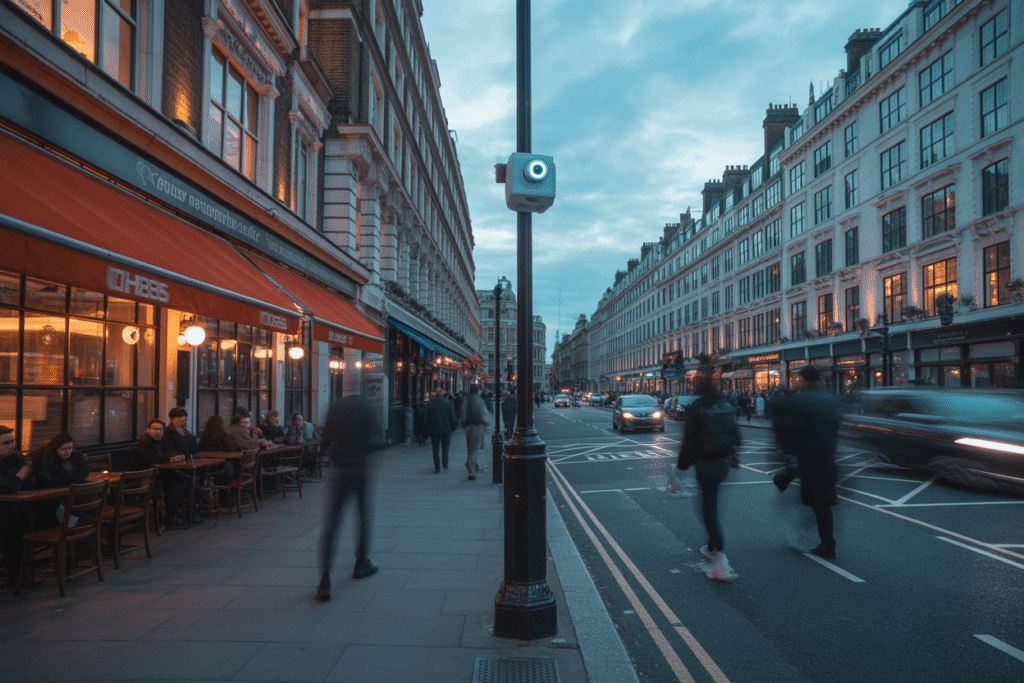From London’s streets to Silicon Valley boardrooms, AI’s promise collides with its perils—misidentifications, job fears, and bubble warnings.
AI headlines are moving faster than the tech itself. In just three hours, London police bragged about facial recognition errors, crypto fans clamored for AI agents, and Sam Altman called the whole thing a bubble. Let’s unpack the chaos.
When Eight Mistakes Feel Like Eight Hundred
Facial recognition is no longer sci-fi—it’s on every street corner. London’s Metropolitan Police just bragged that their AI cameras only misidentified eight innocent people this year. Eight. That’s their idea of progress.
But imagine being one of the eight. You’re walking to lunch when armed officers surround you because an algorithm decided your face belongs to a suspect. No apology, no explanation—just a shrug and a statistic.
Privacy advocates are furious. Big Brother Watch called it “Orwell’s worst nightmare,” and they’re not exaggerating. The tech scans thousands of faces per minute, storing biometric data indefinitely. Critics warn the error rate will skyrocket once the system scales.
Supporters argue it keeps cities safe. They point to faster suspect identification and reduced crime. Yet studies show facial recognition fails more often on darker skin tones, raising uncomfortable questions about built-in bias.
The debate boils down to one question: how much freedom are we willing to trade for the illusion of security?
Golden Tickets to an Uncertain Future
Across the Atlantic, Teneo Protocol just gave away twenty “Golden Agent Ticket” NFTs. Winners get AI agents that can trade crypto, write reports, even craft memes. Over a thousand replies flooded in within hours.
Users dreamed big. One imagined an agent acting as a “crypto war machine,” scanning markets 24/7. Another pictured an AI sidekick handling emails, calendars, and maybe even firing off snarky tweets.
The excitement is palpable, but so is the anxiety. If a bot can outperform human traders, what happens to the analysts? If it writes better copy than marketers, where do the creatives go?
Proponents say new jobs will emerge—AI trainers, ethicists, prompt engineers. Skeptics counter that history shows automation favors capital over labor, widening the wealth gap.
The thread reads like a microcosm of our future: dazzling potential shadowed by unease. Are we unlocking superpowers or signing our own pink slips?
Bubble Trouble at the Edge of Tomorrow
Sam Altman broke the internet again—this time by calling AI a bubble. The OpenAI CEO warned that sky-high valuations and investor frenzy could end in tears. His words carry weight; after all, his company is ground zero for the boom.
Altman isn’t anti-AI. He’s pouring billions into data centers and touting breakthroughs in healthcare and automation. But he sees the hype outpacing reality, with failed deployments and ethical lapses piling up.
Board directors echo his concern. A new survey reveals 92% believe strict regulations could push innovation offshore. Meanwhile, insurers like Marsh are sounding alarms about liability risks—from biased algorithms to mass surveillance.
The irony is thick. We’re racing to build super-intelligent systems before we’ve figured out how to govern them. Every breakthrough feels like a double-edged sword: life-saving diagnostics on one side, privacy-eroding surveillance on the other.
So, what’s next? A soft landing where ethics catch up to innovation? Or a spectacular crash that sets progress back a decade? The clock is ticking, and the stakes couldn’t be higher.


